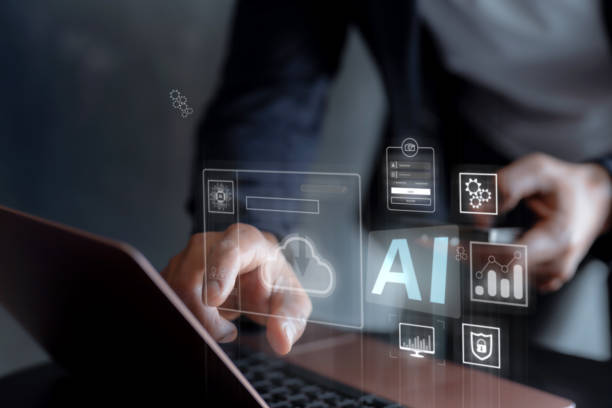Introduction and Overview: The Dawn of Artificial Intelligence and its Impact on the Global Job Market
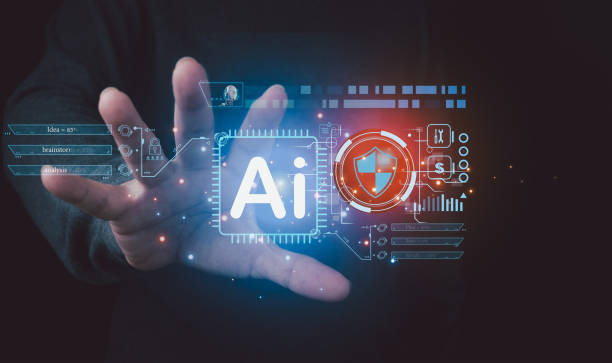
The emergence and expansion of Artificial Intelligence (AI) is one of the most significant developments of the current era, not only affecting various aspects of our lives but also completely redefining the #job_market_structure and #career_future of millions worldwide.
This technology, once confined to science fiction stories, has now become a tangible reality, offering unprecedented capabilities in data analysis, process automation, and complex decision-making.
The wave of changes brought about by AI encompasses a wide range of industries, from manufacturing and financial services to healthcare and education.
News and analytical content indicates that predictions about the future of AI jobs vary, from positive aspects and the creation of new job opportunities to concerns about the disappearance of current jobs.
But what is certain is that AI will be a key player in the evolution of the future of work.
To better understand this landscape, we need a comprehensive and precise review.
This article seeks to provide an explanatory and guiding perspective on how to deal with this immense transformation.
How should we prepare ourselves for these changes? Which skills will gain value, and which jobs will undergo fundamental transformation?
This section will serve as an introduction to deeper discussions, setting the stage for a more specialized examination of AI’s impact on future jobs.
Our goal is to provide a realistic and practical outlook so that individuals and organizations can take effective steps to prepare for this new era with full awareness.
The importance of understanding this job transformation lies in our ability to capitalize on the countless opportunities it offers, instead of resisting it.
This is an invitation to re-evaluate traditional models of work and education.
Did you know that poor online store design can drive away up to 70% of your potential customers? Rasaweb transforms your sales with professional and user-friendly e-commerce website designs.
✅ Significant increase in sales and revenue
✅ Full optimization for search engines and mobile
⚡ [Get Free Consultation from Rasaweb]
Transformation of Traditional Jobs: From Disappearance to Structural Change
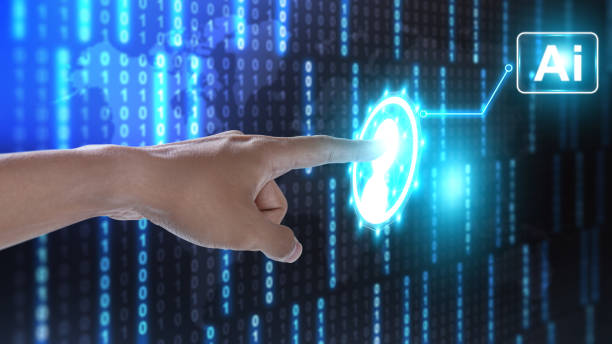
One of the central themes in the discussion of the future of AI jobs is the changing nature of traditional professions.
While many are concerned about the complete replacement of humans by AI, an analytical approach suggests that AI primarily acts as a powerful tool that automates repetitive and data-driven tasks, allowing humans to focus on more creative, strategic, and empathy-requiring work.
This transformation does not mean the complete destruction of jobs, but rather a profound change in job descriptions and required skills.
For example, in the financial services industry, AI can perform tasks such as risk assessment, fraud detection, and market analysis with unparalleled accuracy and speed.
This allows financial analysts to focus on complex interpretation of results and providing strategic advice to clients, instead of spending time on data collection.
Thus, the job of a financial analyst transforms from a data-driven task to a consulting and strategy-driven role.
This is a clear example of job transformation.
In the educational and explanatory section, it is necessary to understand that AI is more than a threat; it is an opportunity for advancement and increased efficiency.
Jobs requiring unique human skills such as creativity, critical thinking, complex problem-solving, emotional intelligence, and interpersonal communication will not only survive but gain more value.
This paradigm shift necessitates extensive reskilling and development of new skills in the workforce to enable them to collaborate with intelligent forces.
The questionable content here is whether the speed of societal education and adaptability matches the speed of AI’s progress. This is a key issue for survival in the AI-driven job market.
New and Emerging Jobs: Unparalleled Opportunities from Artificial Intelligence
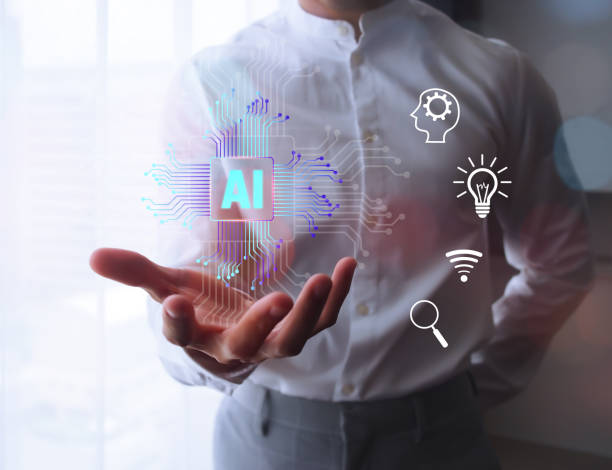
In contrast to concerns about job displacement, the future of AI careers is rich with unparalleled opportunities for the emergence and growth of entirely new professions.
These jobs are a direct result of the development, deployment, maintenance, and improvement of AI systems, requiring a set of specialized and interdisciplinary skills.
This section introduces some of these emerging job roles that can outline new career paths for many.
These jobs include “Prompt Engineer,” “AI Ethicist,” “AI Product Manager,” “AI-focused Data Scientist,” “Machine Learning Engineer,” and “AI UX Designer.”
Each of these roles requires a deep understanding of how AI works, as well as the ability to collaborate with diverse teams.
This is a practical guide for those looking to find their place in the AI-driven economy.
Based on analytical and news analyses, the growth of these jobs indicates a structural shift where individuals capable of bridging the gap between technology and human needs will hold the most value.
For example, a Prompt Engineer must be able to generate precise and effective instructions for Large Language Models (LLMs) using natural language to achieve desired outputs.
This role requires a combination of creativity, logical thinking, and a deep understanding of AI models.
The future of AI jobs means creating thousands of new jobs that we cannot even imagine today.
Below is an educational table to familiarize you with some of these emerging jobs and their main responsibilities:
| Job Title | Short Description | Key Skills |
|---|---|---|
| Prompt Engineer | Optimizing commands for AI models to achieve the best output. | Analytical thinking, creativity, understanding of LLM models |
| AI Ethicist | Ensuring responsible and ethical development and use of AI. | Philosophy, law, technical understanding of AI |
| AI Product Manager | Defining and leading the development of AI-based products. | Product management, AI comprehension, market analysis |
| Machine Learning Engineer | Designing, developing, and deploying machine learning systems. | Programming (Python), mathematics, statistics |
Essential Skills for Adaptation: A Roadmap for Employees in the Age of AI
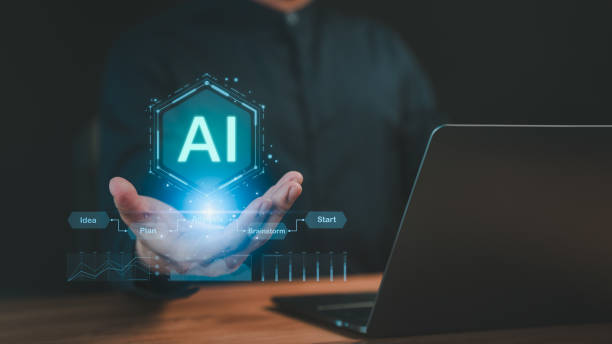
To succeed in the future of AI jobs, merely knowing about new professions is not enough; we must equip ourselves with the necessary skills for adaptation and advancement in this new ecosystem.
These skills can be divided into two main categories: hard skills (technical) and soft skills (human).
This section serves as a comprehensive guide for all individuals who wish to maintain and advance their position in the future job market.
In terms of hard skills, familiarity with basic AI concepts and machine learning, the ability to work with data (data analysis, cleansing, and modeling), and familiarity with AI-related tools are of high importance.
Programming (especially languages like Python and R) and understanding statistical principles will also be essential for many jobs.
These skills provide the foundation for effective interaction with AI systems.
But perhaps more important than hard skills are soft skills, which AI cannot easily replicate.
These skills include critical thinking and complex problem-solving, creativity and innovation, emotional intelligence and empathy, and the ability to work in teams and communicate effectively.
AI can process data, but it cannot create a completely new idea or understand the complexities of human interactions.
Therefore, strengthening these skills is vital for anyone seeking job security in the age of AI.
This educational content tells us that lifelong learning is no longer an option, but a necessity.
Companies and individuals must continuously update their skills and be ready to learn new technologies.
This comprehensive analysis shows that success in the future of AI jobs depends not only on technical knowledge but also on flexibility, adaptability, and human creativity.
This is a specialized look at the future requirements of the job market that must be taken seriously.
Does your company website create a professional and lasting first impression in the minds of potential customers? Rasaweb, with its professional corporate website design, not only reflects your brand’s credibility but also opens a path for your business growth.
✅ Creation of a powerful and trustworthy brand image
✅ Attracting target customers and increasing sales
⚡ Get Free Consultation
The Role of Education and Reskilling: Key to Survival and Advancement in the Age of AI
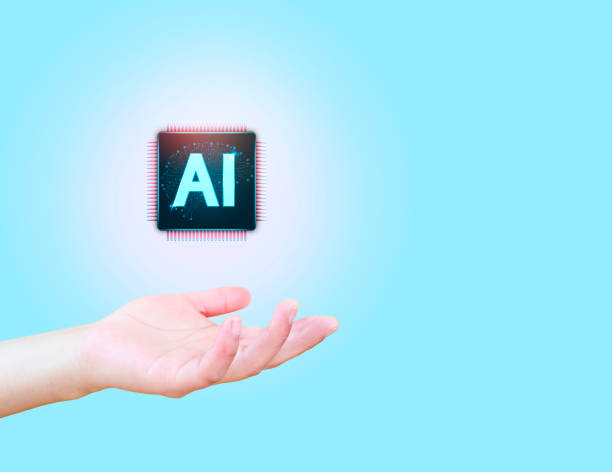
Effectively confronting the challenges and fully leveraging the opportunities of the future of AI jobs depends on a fundamental transformation in educational systems and the culture of lifelong learning.
Reskilling and Upskilling the workforce is not just an option, but a strategic necessity for individuals, companies, and governments.
This section, as an educational guide, addresses the importance and how of this transformation.
Governments and educational institutions must rapidly revise their curricula to teach the skills required for the future job market.
This includes increasing digital literacy, computational thinking skills, and familiarity with AI principles across various educational levels.
Universities and vocational training centers can offer specialized AI and machine learning courses and prioritize the development of soft skills mentioned earlier.
Companies also play a vital role in reskilling their employees.
Investing in internal training, offering online courses, and collaborating with educational institutions to create customized programs can help employees acquire new skills and adapt to changing roles.
This investment not only helps retain talent but also leads to increased productivity.
This is an explanatory and analytical content on why education is important.
For individuals, a self-learning approach and continuous curiosity are key to success in the age of AI.
Utilizing online resources, attending workshops, and following technological trends can help you stay up-to-date.
The concept of the “ever-learning employee” has become a reality.
This is a specialized look at the educational necessities for thriving in the future of AI jobs.
Embracing a culture of continuous learning enables individuals to prepare themselves for new roles and embrace change instead of fearing it.
Challenges and Concerns: Ambiguities Facing the Future of AI Jobs
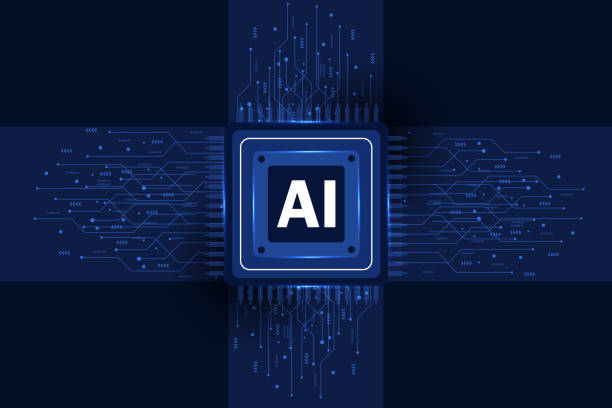
Alongside countless opportunities, the discussion of the future of AI jobs is also accompanied by numerous challenges and concerns, which must be addressed for a comprehensive analysis.
One of the biggest concerns is job displacement and increased unemployment.
Although AI creates new jobs, the pace at which traditional jobs are replaced by automation may exceed the rate at which new jobs are created, potentially leading to social and economic disruptions.
Another issue is the skills gap.
With the rapid transformation of job market demands, many current workers may lack the necessary skills for new jobs.
The process of reskilling and upskilling requires enormous investment in education and infrastructure, which will be challenging for many countries and companies to provide.
This is a questionable content: how can we effectively bridge this gap to prevent widespread technological unemployment?
Furthermore, ethical and privacy issues also play a significant role in the future of AI jobs.
The use of AI in recruitment, performance evaluation, and even employee termination can lead to unintended biases and discrimination.
The need for robust legal and ethical frameworks to ensure the responsible use of AI in the workplace is more pressing than ever.
These ambiguities raise concerns about social justice and the long-term impact of AI on the quality of life of the workforce.
Finally, the discussion of investment and access to technology is also of great importance.
Only companies and countries capable of investing in AI can reap its benefits, which could lead to increased global inequality.
These challenges require innovative policy approaches and international cooperation to ensure a fair transition to the age of AI.
These discussions are an inseparable part of a realistic view of the path ahead.
AI’s Impact on Various Industries: Sectoral Outlook and Key Transformations
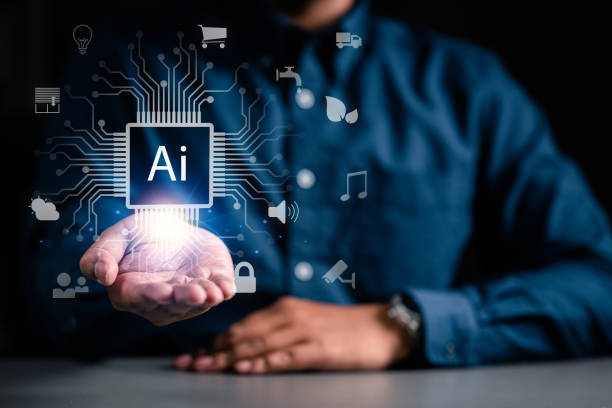
One way to gain a deeper understanding of the future of AI jobs is to examine its impact on various industries.
AI is a general-purpose technology that affects almost every economic sector, but the extent and nature of this impact vary by industry.
This section provides a specialized and analytical look at key transformations in several important industries.
In the healthcare industry, AI has revolutionized disease diagnosis, drug discovery, medical record management, and even surgical assistance.
This has led to the creation of jobs such as “AI Health Data Analyst” and “Medical Robotics Specialist,” while the roles of doctors and nurses have shifted towards more complex clinical decision-making and humanitarian care.
This is an explanatory content on how humans and machines coexist.
In the financial sector, AI has found extensive applications in risk analysis, algorithmic trading, customer services (chatbots), and fraud detection.
This has increased the demand for “Financial Engineers with AI expertise” and “AI Cybersecurity Specialists,” while also pushing bankers and financial advisors towards providing more personalized and strategic consultations.
The future of AI jobs in this sector is a blend of technical and financial expertise.
Manufacturing and logistics industries also benefit from AI; from intelligent robots on production lines to supply chain optimization and demand forecasting.
These developments have increased the need for “Robotics Maintenance Technicians” and “AI Supply Chain Analysts,” shifting the role of production workers towards supervising and managing automated systems.
This is a news content about industrial transformations.
The table below illustrates some of AI’s impacts on selected industries and related job changes in an educational manner:
| Industry | AI Applications | Affected/New Jobs | New Required Skills |
|---|---|---|---|
| Healthcare | Disease diagnosis, drug discovery | Medical Robotics Specialist, Health Data Analyst | Bioinformatics, AI Medical Ethics |
| Finance and Banking | Risk analysis, fraud detection | AI Financial Engineer, AI Cybersecurity Specialist | FinTech, Cybersecurity |
| Manufacturing and Logistics | Robotics, supply chain optimization | Robotics Technician, Smart Supply Chain Analyst | Industrial automation, logistics data mining |
| Education | Personalized learning, intelligent assessment | AI Educational Designer, Smart Learning Platforms Specialist | Instructional design, educational data analysis |
Individual Strategies for Success: Preparing for Tomorrow in the Age of AI
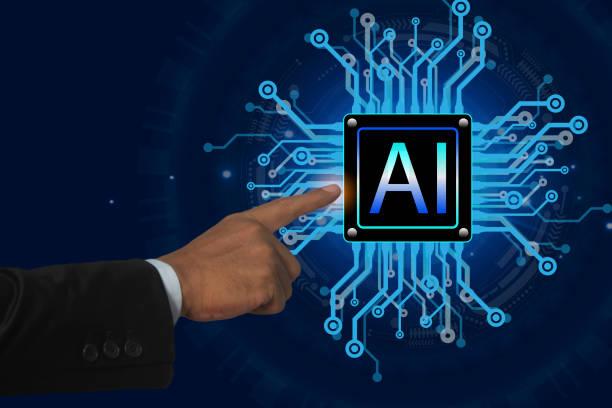
Understanding how the future of AI jobs is changing, it’s now time to discuss practical strategies for individuals to prepare themselves for this era.
This section is a comprehensive guide for anyone who wants to succeed in the dynamic future job market and benefit from new technologies.
The first step is assessing current skills and identifying strengths and weaknesses.
Ask yourself which parts of your job are automatable and which parts require human judgment and creativity.
Then, focus on developing skills that are more resistant to automation and are needed by AI.
This includes systems thinking, interpersonal skills, and the ability to work with data and AI tools.
There are many online resources for this learning.
Second, prioritize continuous learning.
One can no longer spend an entire career with a fixed set of skills.
Look for courses, workshops, and online resources that help you update your technical knowledge and soft skills.
This is vital educational content that should be part of your daily planning.
Networking with AI professionals can also help you better understand new trends and opportunities.
Third, adopt flexibility and agility in your career approach.
You may need to change your job, work in a new industry, or even start a new entrepreneurial venture.
Fear of change is the biggest obstacle to progress in the age of AI.
This is an applied analysis that shows how one can actively move towards an unknown future.
Fourth, focus on your unique human capabilities.
AI can perform tasks efficiently, but creativity, empathy, ethical judgment, and the ability to build relationships still remain within the human domain.
These are skills that, the more they are developed, the stronger your position in the job market will be.
This specialized and engaging approach can offer a fresh perspective on the future of AI jobs and encourage individuals to think proactively.
Are you losing business opportunities because of an outdated website? With Rasaweb, solve the problem of not attracting potential customers through your website forever!
✅ Attract more high-quality leads
✅ Increase brand credibility in the eyes of customers
⚡ Get Free Corporate Website Design Consultation
AI and Macroeconomics: Structural Changes in the Global Job Market
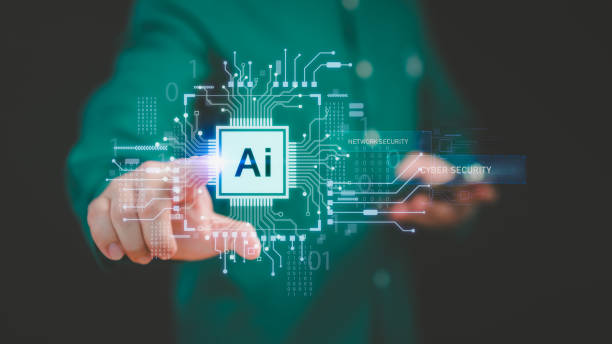
The impact of the future of AI jobs extends beyond the individual and industrial levels, leading to major changes in macroeconomics and the structure of the global job market.
This section, in an analytical and specialized manner, delves into the broader dimensions of these transformations, which can have significant social and political implications.
One of the most important consequences is increased productivity.
By automating tasks and optimizing processes, AI enables companies to produce more output with fewer resources.
This increased productivity can lead to economic growth, but the question is how the benefits of this growth will be distributed among society? This is a questionable content that policymakers must address.
Another issue is the polarization of the labor market.
AI is expected to affect middle-skilled jobs that involve routine tasks more, while jobs at high levels (requiring creativity and complex problem-solving) and low levels (requiring human interaction and non-routine physical tasks) will be less affected.
This could lead to increased income and social inequality unless adequate support and training programs are provided for the transitioning workforce.
Global reports confirm this trend.
The role of governments in this regard is crucial.
Public policies must focus on reskilling the workforce, investing in new technologies, creating strong social safety nets, and regulating the ethical use of AI.
Some ideas, such as Universal Basic Income, have also been proposed as a solution to technological unemployment, although this topic is still under discussion.
This is an explanatory content about macroeconomic changes.
Finally, labor migration and changes in job geographies are also potential consequences.
Countries that are leading in the development and attraction of AI talents can become new economic hubs.
Therefore, the future of AI jobs depends not only on individual capabilities but also on national policies and international cooperation.
This is a news content that requires special attention from all stakeholders.
Human-AI Coexistence: A Collaborative and Sustainable Future
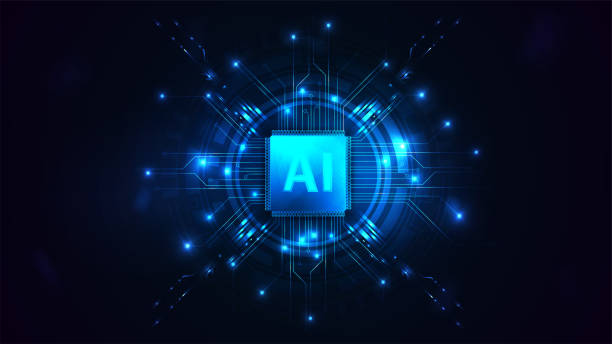
Contrary to some initial perceptions, the future of AI jobs does not necessarily mean the complete replacement of human labor, but rather paves the way for a sustainable and collaborative coexistence between humans and machines.
This section, in an engaging and explanatory manner, addresses how this collaboration can create a more productive and creative work environment.
The idea is for humans and AI to complement each other in areas where they excel.
AI is unrivaled in repetitive tasks, analyzing vast amounts of data, and performing complex calculations, while humans excel in creativity, innovation, empathy, ethical judgment, and the ability to solve unstructured problems.
This ideal combination leads to increased productivity and the creation of new values in the job market.
In other words, AI can be a powerful tool in human hands, not a competitor.
This perspective is increasingly discussed in academic and industrial circles.
For example, in design, AI can generate thousands of designs in a fraction of a second, but it is the human who perceives the aesthetics, emotion, and connection with the audience in those designs and chooses the best option.
In medicine, AI can diagnose diseases with high accuracy, but it is the doctor who, with empathy and understanding of the patient’s needs, sets the treatment plan and communicates with them.
These examples show that the future of AI jobs is a future for enhancing human capabilities, not undermining them.
Therefore, instead of worrying, we should prepare to learn to collaborate with AI.
This means mastering AI tools, understanding their limitations, and leveraging them for more complex and human-centric tasks.
This is an optimistic and forward-thinking view of the future of work that can enlighten the path for future generations.
By investing in education and developing complementary skills, we can leverage the full potential of AI to build a smart yet human-centered job future.
Frequently Asked Questions
| Question | Answer |
|---|---|
| What impact will AI have on the future job market? | AI will automate repetitive jobs, but at the same time, it will create new and more complex jobs in areas such as the development, maintenance, and training of AI systems. |
| Which jobs are most at risk of being replaced by AI? | Jobs involving repetitive, rule-based tasks with low requirements for creativity or emotional intelligence, such as some manufacturing jobs, data entry, and simple customer service, are most at risk. |
| What skills are essential for success in the future job market with AI? | Skills such as critical thinking, complex problem-solving, creativity, emotional intelligence, data literacy, the ability to work with AI, and lifelong learning are of high importance. |
| Will AI cause widespread unemployment? | Some jobs will be lost, but history has shown that new technologies, instead of causing widespread unemployment, reshape the job market and create new jobs. The need for adaptation and retraining is crucial. |
| What new job opportunities emerge with the advent of AI? | Jobs such as Machine Learning Engineer, Data Scientist, AI Ethicist, Human-AI Interaction Designer, and Digital Transformation Consultant are among the new opportunities. |
| What is the role of education in preparing for the future job market with AI? | Education must focus on developing soft skills, computational thinking, digital literacy, and the ability for continuous learning to prepare individuals for future changes. |
| How can I prepare myself for the changes in the job market caused by AI? | You can prepare yourself by learning new skills related to AI and data, strengthening soft skills, developing critical thinking and creativity, and adopting a habit of lifelong learning. |
| Will AI ethics become an important career field? | Yes, given increasing concerns about biases, privacy, and automated AI decision-making, the role of AI ethics specialists will become crucial for ensuring its responsible development. |
| What is the importance of human-AI collaboration in the future of work? | Human-AI collaboration, rather than competition, will shape the future of the job market. AI can be a tool to increase productivity and allow humans to focus on more complex and creative tasks. |
| Which industries will be most affected by AI? | Virtually all industries will be affected, but fields such as healthcare, finance, transportation, manufacturing, education, and customer service are among the pioneers in adopting and transforming by AI. |
and other services of Rasa Web Advertising Agency in the field of advertising
Smart Custom Software: A combination of creativity and technology for analyzing customer behavior through user experience customization.
Smart Conversion Rate Optimization: An innovative platform for improving campaign management with Google Ads management.
Smart Google Ads: Professional optimization for campaign management using an SEO-driven content strategy.
Smart Content Strategy: A combination of creativity and technology for analyzing customer behavior using real data.
Smart Sales Automation: An innovative platform for improving customer acquisition with custom programming.
and over hundreds of other services in the field of internet advertising, advertising consulting, and organizational solutions
Internet Advertising | Advertising Strategy | Advertorial
Sources
Reference Links:
- Future of AI Jobs in Iran
- AI Job Opportunities in Iran’s Job Market
- Challenges Facing AI in the Country
- The Role of AI in Future Job Transformations
? Are you ready to transform your business in the digital space? Rasaweb Afarin Digital Marketing Agency, with years of experience and expertise in professional website design, SEO, and comprehensive digital strategies, offers innovative solutions for your sustainable growth and success.
📍 Tehran, Mirdamad Street, next to Central Bank, Southern Kazeroun Alley, Ramin Alley, No. 6

